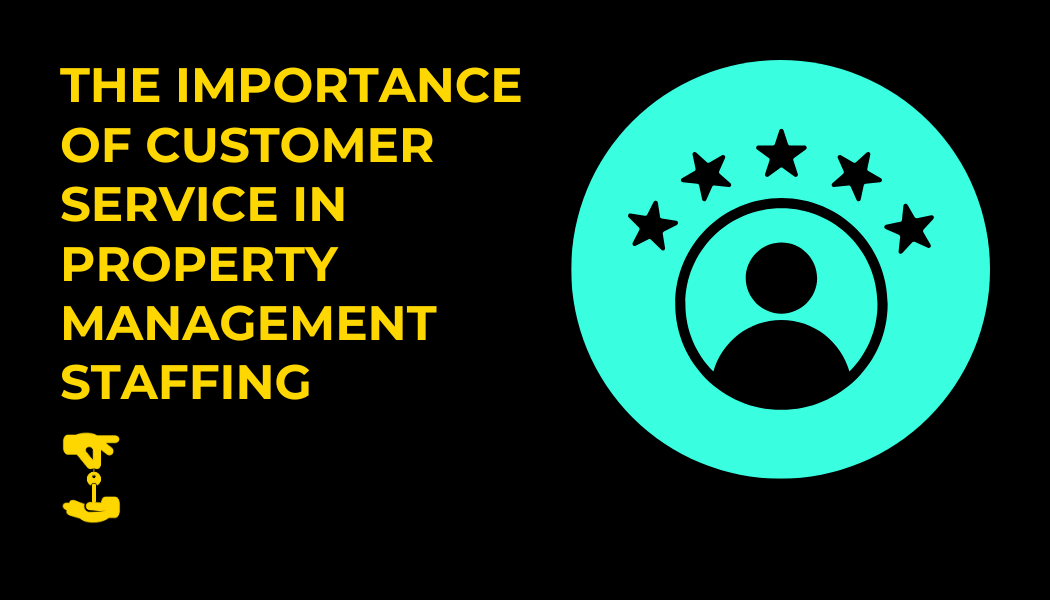A Career in Property Management
If you are looking to break into a new career, property management could be the right direction for you.

If you are looking to break into a new career, property management could be the right direction for you. A property manager is a person that specializes in ensuring that rental properties are operating efficiently within the guidelines given to them by the property owner. Property managers not only have to fulfill the needs of the owner, but also the residents. Making sure to know everything about the property, whether it is commercial or residential, is essential for the success of any property manager. There are roughly 281,345 property management companies in the United States, making it a career with ample opportunities for anyone willing to put in the work.
With an annual employee turnover rate of 33%, well above the U.S. national average rate of 22%, there are ample opportunities to prosper in this field. As of December 4, 2020, the average annual salary for a Property Manager in the United States is $47,036. Sounds like a great career to get into, right? If you are someone with drive, a good attitude, great communication skills, and are willing to get the experience needed, property management could be the right career for you.
What Do Property Managers Do?
The main goal of any property manager is to make sure that everything is operating smoothly within the rental property daily. There are many aspects that must be taken care of by the property manager to keep the property running. The following is a list of some of the tasks you can expect to be responsible for as a property manager:
> Take Care of Residents
Making sure that residents are taken care of is a crucial part of being a property manager. If a resident has faulty equipment or they need a repair, the property manager needs to make sure that they have maintenance fix these inconveniences so the resident can use the amenities in the property. Keeping the property presentable is also key to keeping residents happy. Maintaining flowers, keeping the grass mowed and making sure there is no trash on the property will help cultivate a good relationship with residents.
> Closing on Future Residents
Depending on the size of the property, the property manager might also take on the role of a leasing agent. Usually, if the property has more than 200 residents, the property manager will focus on the duties needing to be done after the lease is signed. However, in smaller properties, property managers might have to secure future residents. To close on future residents, you must know how to handle telephone inquiries, reply to emails, get appointments to show the property and show the property to the future resident. When starting out in property management it is important to get trained in these areas. Leasing Temporaries is a great example of a company that trains their staff before they ever get a temporary job as a property manager or leasing agent.
Handling Telephone Inquiries
The objective of a successful property manager while handling telephone inquiries from a future resident is to gather information, establish a relationship, and set an appointment for the future resident to come and see the property. To meet these objectives, the property manager needs to be professionally trained in telephone etiquette, have a positive attitude and have extensive knowledge on their property.
Replying to Email Inquiries
It is important for a property manager that also handles leasing to be trained in replying to email inquiries. Future residents that contact a property via email are highly interested in the property, yet 70% of these leads are never contacted! Replying to these emails as soon as possible is crucial to getting a close. When online future residents are called back within an hour the closing success rate is 93%. After just 8 hours, the rate falls to an 84% failure rate. This is why it is so important to get in touch with these leads immediately and be trained in proper email etiquette.
Showing the Property
No matter if the property is residential or commercial, a property manager knowing how to show the property is key to closing on the lease. Being trained on how to plan your tour route, property curb appeal, showing your target units, and getting the property market ready is pivotal for anyone wanting to have a successful career in property management. Some critical success factors when showing a property include being on time, looking presentable, making sure the property is presentable, and having extensive knowledge on the property.
Closing
From the first moment that you contact the future resident, closing begins. Everything done during the leasing process is leading to the close. With training, a property manager can acquire key knowledge that enables them to become a successful closer. Knowing different closing methods and how to converse with future residents is something that property managers should be trained on if they want to have a good career in this field.
> Setting Rent
One of the most common jobs that the landlord passes to the property manager is setting the rent. As a property manager, you must know the property, the area and prices of the comparable properties that are close. Having this information allows you to make an informed decision on what the rent should be to draw in tenants and make a profit.
> Collecting Rent
Setting up an appropriate system for collecting rent from residents is a task the property manager must handle. Usually there is a collection date the residents must pay their rent by and it is the property manager’s job to make sure everyone pays their rent. Evictions are the responsibility of the property manager as well so keeping track or rent payment and knowing eviction laws is prudent in this career.
> Managing the Budget
A property manager must manage the budget for the property and make sure to keep important financial records. Being able to manage the budget is crucial for turning a profit on any property. Property managers should have knowledge in accepted accounting practices for accurate bookkeeping, tax and investment purposes. Records kept by the property manager should include all income and expense; a list of inspections, signed leases, maintenance requests, complaints, records of repairs, cost of repairs, maintenance costs, and a record of rent collection.
How to Become a Property Manager?
Now that you know what a property manager is and the responsibilities you would have to take on, it is important to know how to become a property manager. Qualifications can vary depending on the property and the employer’s needs. Below are a few ways you can build your resume and stand out from other applicant’s when applying for a role in property management:
> Take Real Estate Courses
Going to a vocational school and taking real estate classes can help develop your credibility as a property manager. Getting a certificate, such as a real estate license, can help to boost your resume and signals to the employer that you know what you are doing.
> Experience
Having previous experience with jobs related to property management, such as a leasing agent, can help you break into the property management world. Gaining experience helps you to develop knowledge about property management and build a network of people that you know within the industry. Temporary property management staffing agencies, such as Leasing Temporaries, can give you great experience and training that will help your career path.
> Education
Some employers will hire a property manager with only a high school diploma, some will not. If you do not have a bachelor’s degree, it is ok! That is where experience, training and taking real estate courses can help push you further in this industry. Starting out as a temp and Leasing Temporaries can give you the training, experience and network needed to succeed in the industry. Having a degree can help, but experience, a vast network and in-depth training can put you above the rest.
Get Started Now!
If property management seems like the career for you, do not wait. The sooner you start gaining experience, the sooner you will become a property manager. Starting as a temp at a place like Leasing Temporaries can help kick start your career in this industry. Apply to other related jobs and build your network. With high turnover rate, you can become a property manager quickly if you take the right steps. The only person standing between you and your dream career is you, start today!












